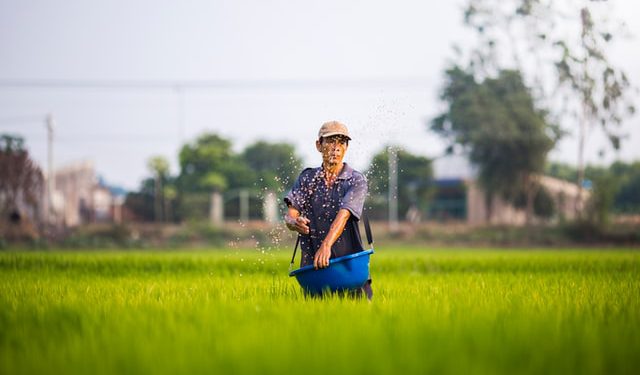The Geneva Academy will teach peasant organisations about seed system rights in the Philippines, India, Nepal, Kenya, Niger, Mali, Burkina Faso, South Africa, Bolivia and Mexico.
The project is coordinated by Action de Carême and funded by the Swiss Development and Cooperation Agency.
As well as seed systems, the Academy will train project partners and local organisations on the rights of peasants and the use of national, regional and international mechanisms to protect them.
“This is a unique opportunity to bring concrete changes in the lives of peasants,” said Dr Christophe Golay, Strategic Adviser on Economic, Social and Cultural Rights and Senior Research Fellow at the Geneva Academy.
“This project forms part of our strategic objective to focus on the implementation of UN peasants’ rights.”
“Saving, selecting, re-using seeds remains essential to food security and biodiversity”
The Academy’s new research brief The Right to Seeds and Intellectual Property Rights explains peasants’ rights to seeds in the United Nations Declaration on the Rights of Peasants and Other People Working in Rural Areas (UNDROP).
The brief explains inherent tensions between the human right to seeds and intellectual property in international law, saying the UNDROP position should prevail.
Ten thousand year practices of saving, selecting, exchanging, selling and re-using seeds remain essential to peasants’ right to food, as well as to global food security and biodiversity, it says.
The World Trade Organization (WTO) and International Union for the Protection of New Varieties of Plants (UPOV), have promoted intellectual property rights to the detriment of this. Commercial seed systems challenge customary practices and agrobiodiversity, it says.
“In the great majority of states, seed laws and regulations have been designed to promote the agricultural industry, and peasants seed systems have been largely neglected,” Christophe Golay explained.
“The majority of rural people in developing countries rely on peasant food and seeds systems”
“In Europe, for example, national seed catalogues and the European Union (EU) Common Catalogue have been designed to promote industrial seeds and agriculture standards, largely excluding peasant seeds.
“In a number of countries, peasant seed selling is prohibited. This has largely discouraged the continuation of peasant agricultural activities.
“Today, the majority of people in rural areas in developing countries rely on peasant food and seeds systems.
“The recognition of the right to seeds in the UNDROP is crucial for the right to food.”
State laws must better protect peasants’ right to seeds, the brief says. Precedents for this include the 2001 Protection of Plant Varieties and Farmers Rights Act in India.
“The EU should ensure human rights take precedence over trade or intellectual property”
In addition to this, the Geneva Academy is contributing as the EU revises its legislation on seed marketing. Research team – Dr Christophe Golay and Dr Karine Peschard – have provided a series of official submissions to the European Commission (EC).
They include a background paper and answers to more than 150 questions, building on a previous submission.
“Ensuring new legislation on seed marketing is fully in line with UNDROP is key as it will be automatically transposed in the 27 EU member states’ national seed marketing regimes,” Christophe Golay said.
“It’s important that the EU respects international law to ensure human rights take precedence over trade or intellectual property,” adds Dr Karine Peschard, Associate Research Fellow at the Geneva Academy.
Following this EC consultation process, the EC will formally propose a regulation, with direct effect, or a directive to be transposed in the EU Member States, that will then be negotiated by the European Council and the European Parliament for adoption in 2023.























